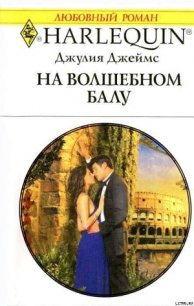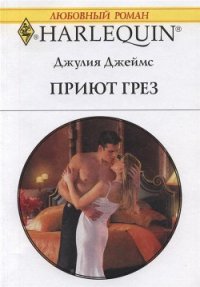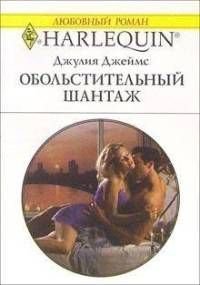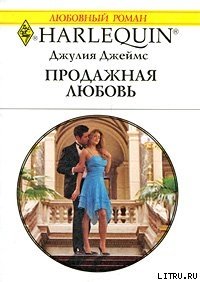Julia Ward Howe - Richards Laura E. (бесплатная регистрация книга TXT) 📗
Later she writes:—
"Chev has taken our passage in the Asia, which sails on the 13th proximo. So we have the note of preparation, and the prospect of change and separation makes us feel how happy we have been, in passing this whole winter together."
The remaining days were full of work of every kind. She gave readings here and there in aid of the Cretans.
"Ran about much: saw Miss Rogers's deaf pupils at Mrs. Lamson's, very interesting.... For the first time in three days got a peep at Fichte. Finished Jesse's 'George the Third.'
"Went to Roxbury to read at Mrs. Harrington's for the benefit of the Cretans. It was a literary and musical entertainment. Tickets, one dollar. We made one hundred dollars. My poems were very kindly received. Afterwards, in great haste, to Sophia Whitwell's,[65] where I received a great ovation, all members greeting me most affectionately. Presently Mr. [Josiah] Quincy, with some very pleasant and complimentary remarks on Dr. Howe and myself, introduced Mrs. Silsbee's farewell verses to me, which were cordial and feeling. Afterwards I read my valedictory verses, strung together in a very headlong fashion, but just as well liked as though I had bestowed more care upon them. A bouquet of flowers crowned the whole, really a very gratifying occasion."
"March 13. Departure auspicious. Dear Maud, Harry, and Flossy on board to say farewell, with J. S. Dwight, H. P. Warner, and other near friends. Many flowers; the best first day at sea I ever passed."
Julia and Laura were the happy two chosen to join this expedition, the other children staying with relatives and friends. From first to last the journey was one of deepest interest. The Journal keeps a faithful record of sight-seeing, which afterward took shape in a volume, "From the Oak to the Olive," published in 1868, and dedicated "To S. G. H., the strenuous champion of Greek liberty and of human rights."
It is written in the light vein of "A Trip to Cuba." In the first chapter she says: "The less we know about a thing, the easier it is to write about it. To give quite an assured and fluent account of a country, we should lose no time on our first arrival. The first impression is the strongest. Familiarity constantly wears off the edge of observation. The face of the new country astonishes us once, and once only."
Though much that she saw during this trip was already familiar to her, there is no lack of strength in the impression. She sees things with new eyes; the presence of "the neophytes," as she calls the daughters, gives an atmosphere of "first sight" to the whole.
In London she finds "the old delightful account reopened, the friendly visits frequent, and the luxurious invitations to dinner occupy every evening of our short week."
"London. Lunch with the Benzons, whose palatial residence moved me not to envy. This seems an idle word, but I like to record my satisfaction in a simple, unencumbered life, without state of any kind, save my pleasant relations and my good position in my own country. Mrs. Benzon asked me to come alone to dinner in the evening. First, however, I called upon Arthur Mills at Hyde Park Gardens; then upon Mrs. Ambassadress Adams, who was quite cordial; then in frantic hurry home to dress. At Benzon's I met Robert Browning, a dear and sacred personage, dear for his own and his wife's sake. He sat next me at table and by and by spoke very kindly of my foolish verses[66] about himself and E. B. B. I mean he spoke of them with magnanimity. Of course my present self would not publish, nor I hope write, anything of the kind, but I launched the arrow in the easy petulance of those days, more occupied with its force and polish than with its direction."
"To Lady Stanley's 5 o'clock tea, where I met her daughter Lady Amberley and Sir Samuel Baker, the explorer of the sources of the Nile. Dined with the Benzons, meeting Browning again."
"Tea with Miss Cobbe. Met the Lyells. Dined with Males family, Greek,—a most friendly occasion. Afterwards went for a short time to Mrs. ——, a very wealthy Greek widow, who received us very ill. Heard there Mr. Ap Thomas, a Welsh harper who plays exceedingly well. The pleasure of hearing him scarcely compensated for Mrs. ——'s want of politeness, which was probably not intentional. Saw there Sir Samuel and Lady Baker, the latter wore an amber satin tunic over a white dress, and a necklace of lion's teeth."
"April 5. Breakfast with Mr. Charles Dalrymple at 2 Clarges Street, where we met Mr. Grant Duff, Baron McKaye, and others. Tea at Lady Trevelyan's, where I was introduced to Dean Stanley of Westminster ... and young Milman, son of the Reverend H. M. Lady Stanley was Lady Augusta Bruce, a great favorite of the Queen. Dined at Argyll Lodge, found the Duchess serene and friendly; the Duke seemed hard and sensible, Lord Lorne, the eldest son, very pleasant, and Hon. Charles Howard and son most amiable, with more breeding, I should say, than the Duke. Chev was the hero of this occasion; the Duchess always liked him."
During this brief week, the Doctor had been in close communication with the Greeks of London, who one and all were eager to welcome him, and to bid him Godspeed on his errand. His business transacted, he felt that he must hurry on toward Greece. Some stay must be made in Rome, where our Aunt Louisa (now Mrs. Luther Terry) was anxiously expecting the party; but even this tie of affection and friendship could not keep the Doctor long from his quest. On May 1 he and Julia went to Greece, the others remaining for some weeks in Italy.
Sixteen years had passed since our mother's last visit to Rome. She found some changes in the city, but more vital ones in herself.
"I left Rome," she says, "after those days, with entire determination, but with infinite reluctance. America seemed the place of exile, Rome the home of sympathy and comfort.... And now I must confess that, after so many intense and vivid pages of life, this visit to Rome, once a theme of fervent and solemn desire, becomes a mere page of embellishment in a serious and instructive volume."
Here follows a disquisition on "the Roman problem for the American thinker"; the last passage gives her conclusion:—
"A word to my countrymen and countrywomen, who, lingering on the edge of the vase, are lured by its sweets, and fall into its imprisonment. It is a false, false superiority to which you are striving to join yourself. A prince of puppets is not a prince, but a puppet; a superfluous duke is no dux; a titular count does not count. Dresses, jewels, and equipages of tasteless extravagance; the sickly smile of disdain for simple people; the clinging together, by turns eager and haughty, of a clique that becomes daily smaller in intention, and whose true decline consists in its numerical increase—do not dream that these lift you in any true way—in any true sense. For Italians to believe that it does, is natural; for Englishmen to believe it, is discreditable; for Americans, disgraceful."
The Terrys were at this time living in Palazzo Odescalchi. Our mother observes that "the whole of my modest house in Boylston Place would easily, as to solid contents, lodge in the largest of those lofty rooms. The Place itself would equally lodge in the palace. I regard my re-found friends with wonder, and expect to see them execute some large and stately man?uvre, indicating their possession of all this space."
It was Holy Week when they arrived in Rome, and she was anxious that the "neophytes" should see as much as possible of its impressive ceremonies. She took them to St. Peter's to see the washing of the pilgrims' feet by noble Roman ladies, and to hear the "Miserere" in the Sistine Chapel. These functions are briefly chronicled in the Journal and more fully in "From the Oak to the Olive."




